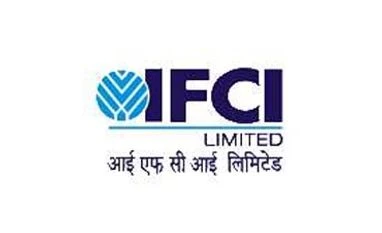IFCI zooms 28% in 2 days, hits over 5-year high on huge volumes
Till 02:29 PM: a combined 172 million equity shares representing nearly 7 per cent of total equity of IFCI had changed hands on the NSE and BSE.
)
Listen to This Article
Shares of IFCI hit over five-year high at Rs 21.40, as they rallied 15 per cent on the BSE in Wednesday’s intra-day trade on the back of heavy volumes. In past two trading days, the stock of state-owned financial institution has zoomed 28 per cent. It was quoting at its highest level since April 2018. In comparison, the S&P BSE Sensex was down 1.2 per cent or 797 points at 66,800 at 02:29 PM.
A combined 172 million equity shares representing nearly 7 per cent of total equity of IFCI changed hands on the NSE and BSE.
IFCI’s financing activities covered various kinds of projects such as airports, roads, telecom, power, real estate, manufacturing, services and other such allied industries. However, due to liquidity constraints, IFCI halted its lending operations since FY22.
Also Read
IFCI’s net losses reported during FY23 reduced to Rs 287 crore as against a net loss of Rs 1,991 crore in FY22 driven by recoveries in FY23 and impairment reversal.
The rating agency ICRA in May 2023, reaffirmed rating of IFCI’s instrument with a negative outlook. In its rationale, ICRA said the ratings reaffirmation factors in IFCI’s stretched liquidity position vis-à-vis its forthcoming debt maturities as well as the continued uncertainty regarding its business revival plan, which envisages capital infusion from the Government of India (GoI) to turn around its operations.
The outlook on the rating continues to be on ‘Negative’ with stretched liquidity position and negative cumulative mismatches in the medium-term buckets, continued weak asset quality and capitalisation profile, sustained loan book contraction and weak profitability metrics. The outlook may be revised to ‘Stable’ if IFCI is able to improve its liquidity position, and the profitability metrics, CARE Ratings said in June 2023.
IFCI has managed its debt repayments during the last few years by running down its standard loan book, making recoveries from non-performing advances (NPAs) and divesting its non-core assets.
However, with the significant reduction in the standard loan book and given its limited scale in relation to the size of the repayment obligations, the company’s ability to incrementally manage debt repayments out of the residual performing book will remain a challenge. Moreover, IFCI will have to rely on timely support from the GoI, apart from recoveries from NPA accounts or divestment of key subsidiaries, to service its upcoming repayment obligations, ICRA said.
Given the significantly weak capital position, liquidity, solvency profile and earnings outlook, the ratings are unlikely to be upgraded in the near term. However, the outlook may be changed to 'Stable'; if IFCI’s strategic importance to the GoI increases significantly along with the infusion of sizeable capital, which would improve its solvency and liquidity position and enable it to resume business growth by securing fresh funds.
The ratings also factor in the fact that IFCI has been mandated by GoI for managing various social and industrial upliftment schemes. The liquidity position, going forward, remains dependent on the recoveries from the NPA, materialisation of its divestment plans for its non-core assets including its investment in subsidiaries and a substantial equity infusion from the GoI, CARE Ratings said in its rationale.
More From This Section
Don't miss the most important news and views of the day. Get them on our Telegram channel
First Published: Sep 20 2023 | 2:59 PM IST
